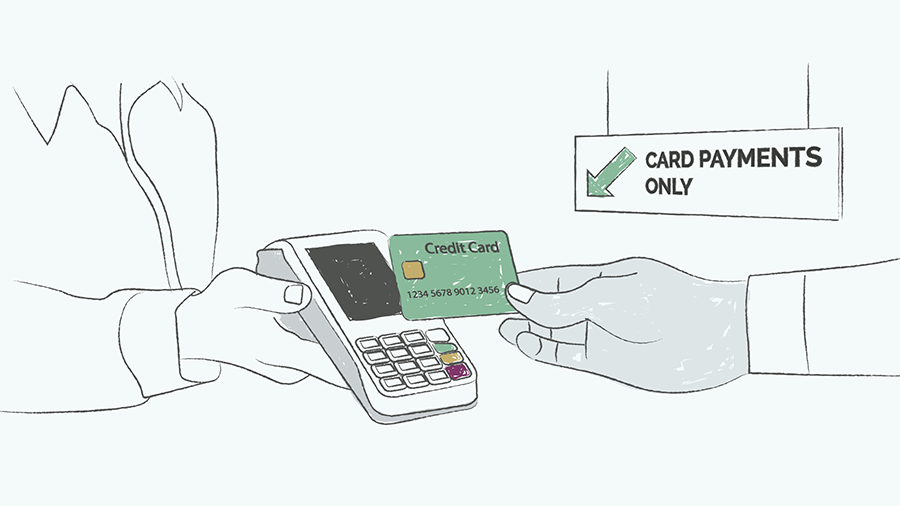 Contactless and digital finance are so much quicker and more convenient that old money just isn’t a relevant concept for them.
Contactless and digital finance are so much quicker and more convenient that old money just isn’t a relevant concept for them.
Businesses are starting to respond. It’s not uncommon, particularly since the pandemic, to see shops or restaurants with ‘card only’ signs.
There are certain advantages to taking this approach that go beyond the lockdown-era hygiene considerations. US research in 2018 by IHL Group found that the cost of handling cash in retail – once you’ve factored in the time it takes to count, deposit and audit it – ranges from 4.7% to 15% of its value, making it often more expensive than the cost of digital payment systems.
But before you consign the humble till to the dustbin of history, it’s worth considering the unintended consequences.
The Cash Census, published by the RSA in March, attempted to do exactly this, examining the wider societal implications of a ‘dash from cash’ – an unmanaged transition to card and digital-only payments.
It found that 19% of people would struggle to cope in a cashless society, while a further 29% would find it a major inconvenience – a total not far from half of the population.
A key insight was that cash reluctance is not evenly distributed. People in rural and deprived communities, not to mention the ‘unbanked’, would struggle the most in a cashless society.
Those who did struggle to access basic goods and services would also likely suffer from isolation and potentially lose control of their finances.
The latter is a particular unintended consequence of contactless technology, and its increasing spending limits. It’s remarkably easy to spend a lot of money very quickly when all you have to do is tap your card or your phone.
A cynical business person might be wondering why customers spending too much with them is a problem, or indeed why it matters that people who probably aren’t their customers will be unable to buy from them. For that matter, why don’t they just get with the times?
To them, I’d say two things. One, don’t make assumptions about who your customers are, or who might become one in future, or why they don’t use bank cards or Apple Pay. Besides, it’s generally not a great idea to make it harder for people to do business with you.
Two, businesses have a moral responsibility to consider the impact of their decisions on the community around them. And if that sounds too charitable, then I’d wager we’re all more likely to succeed if we operate on enlightened – rather than naked – self-interest (see above).
In the final analysis, ditching cash may be best for a given business, much as going digital-only may be best. But at least approach the decision with your eyes open about the wider effects it could have.
















